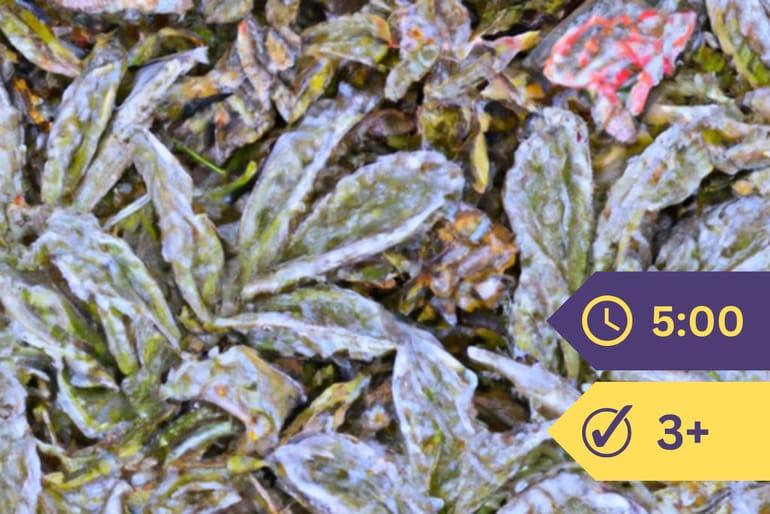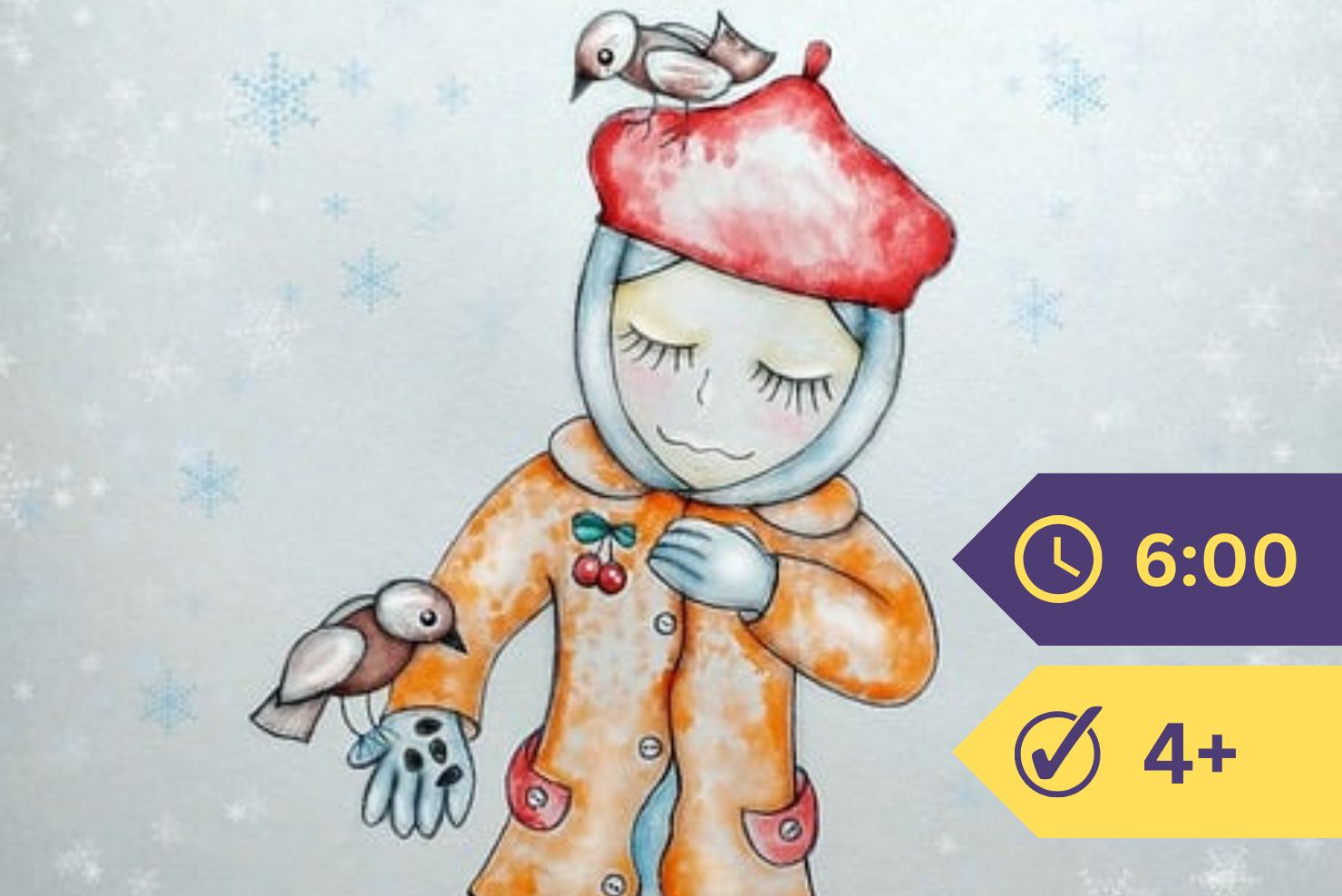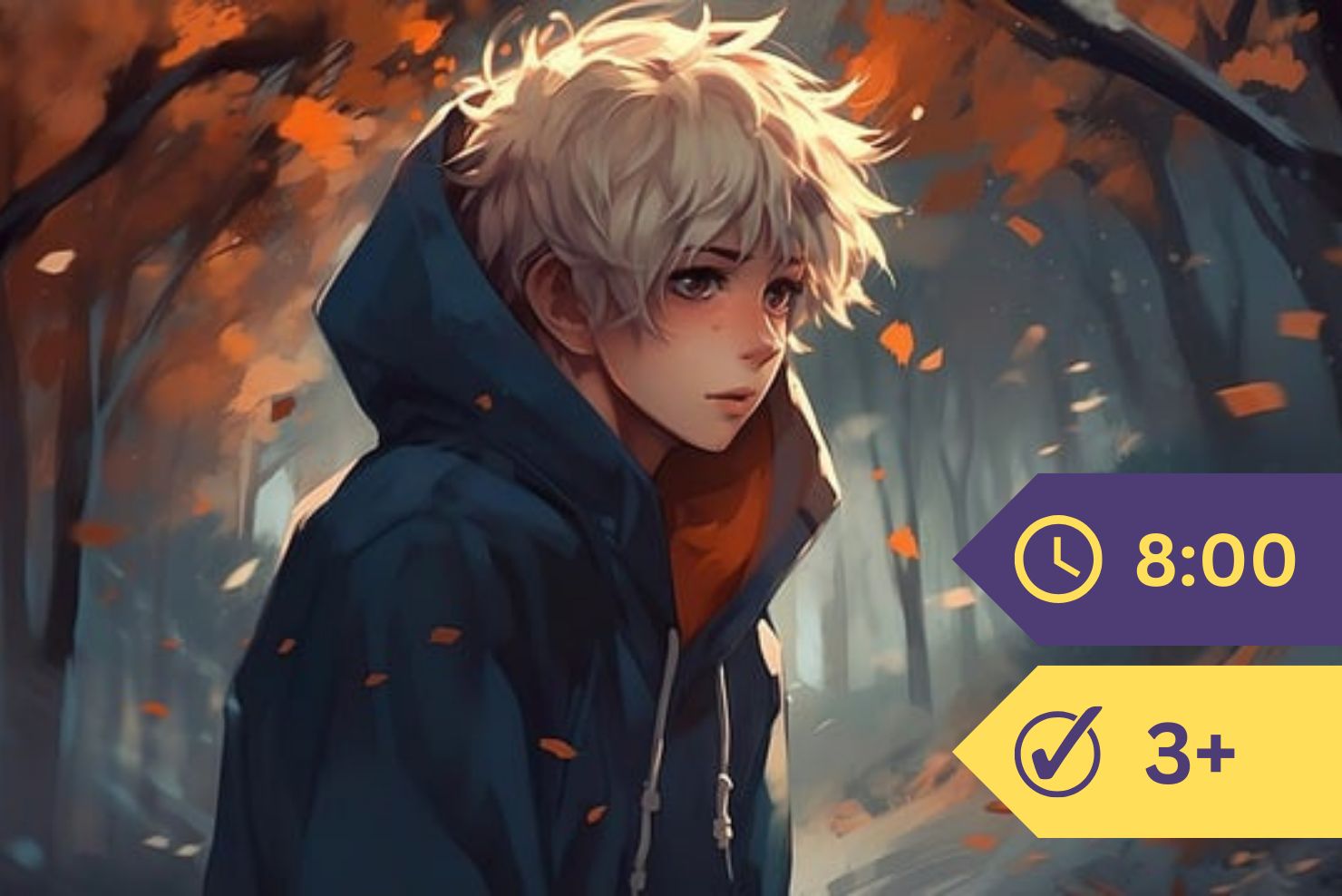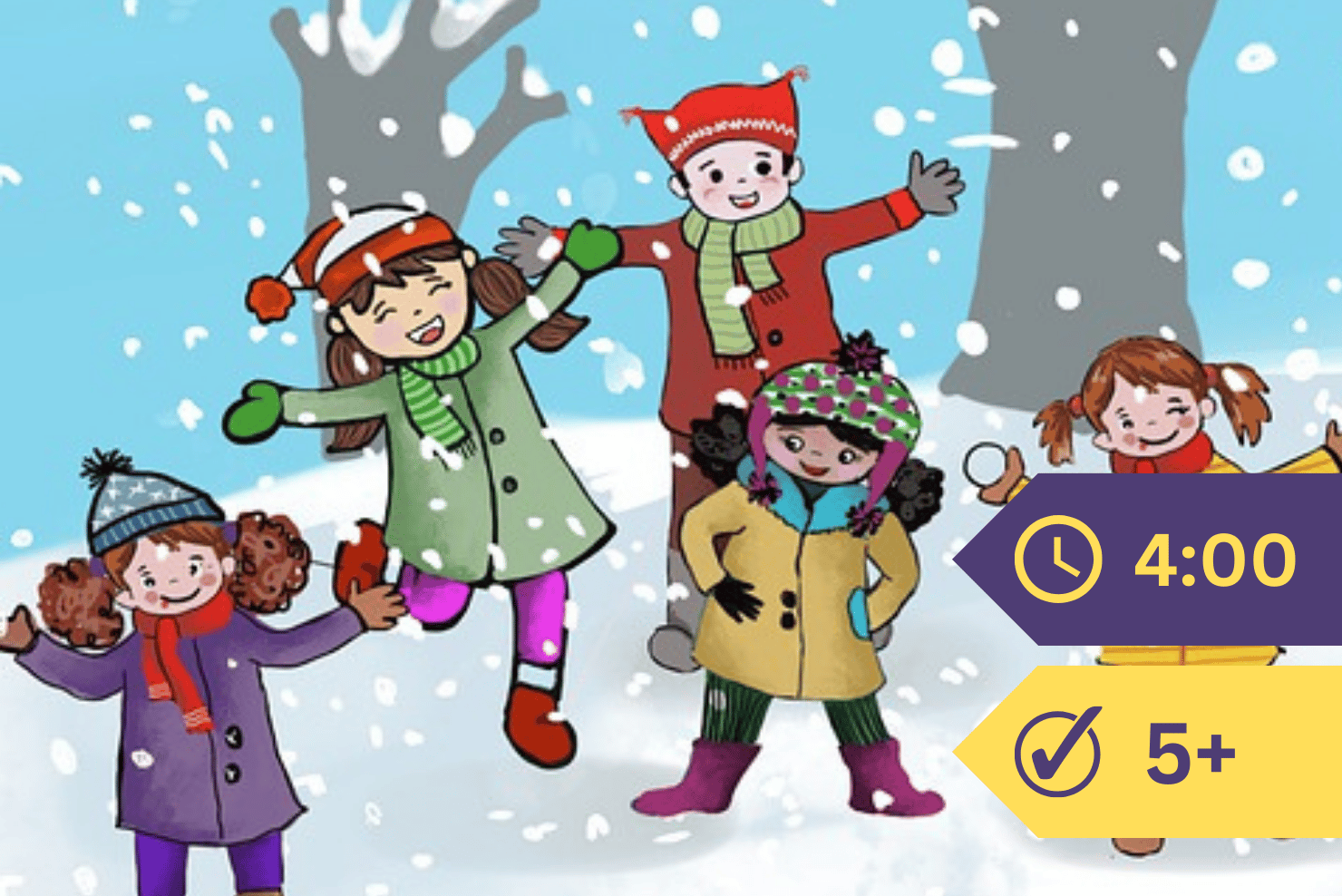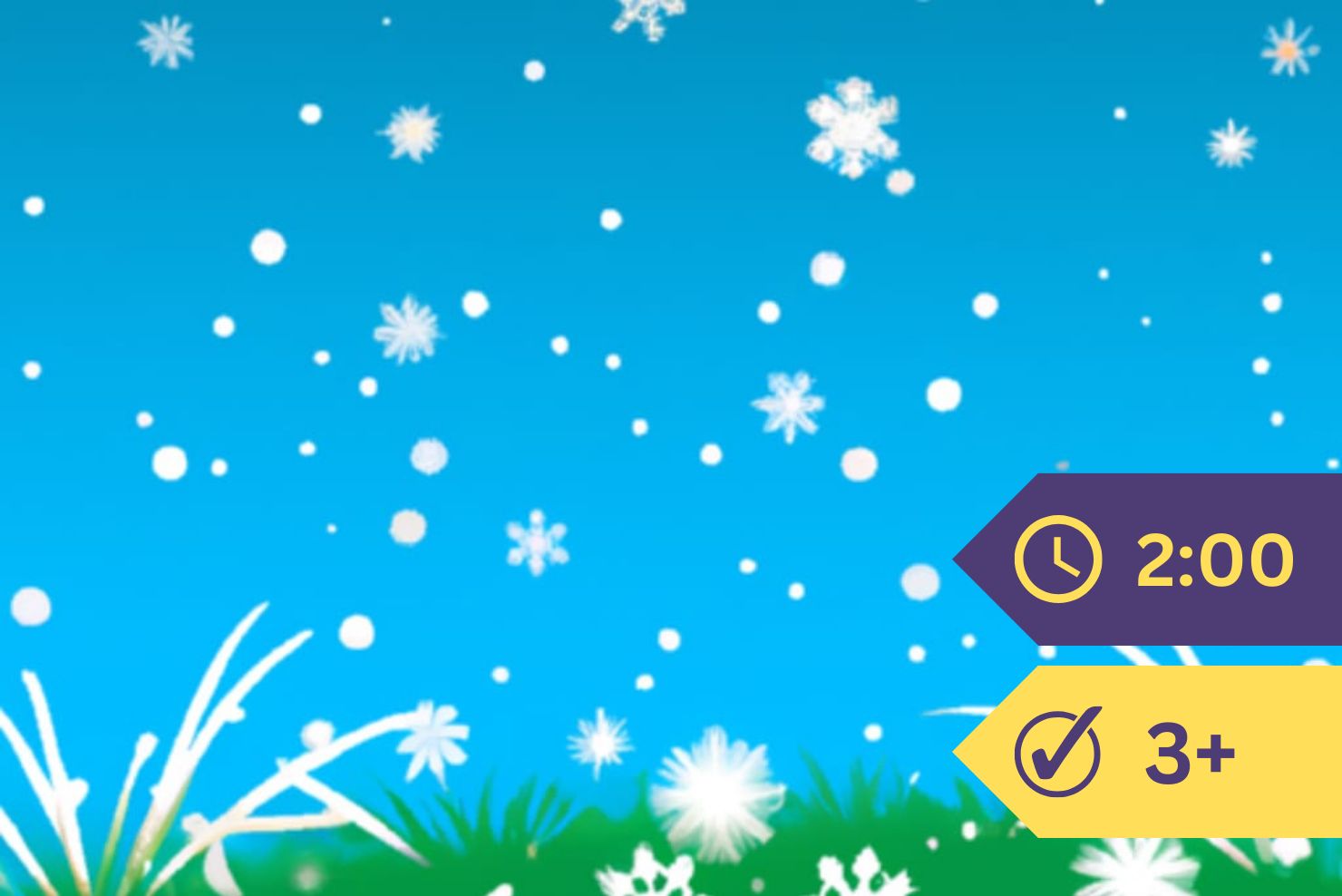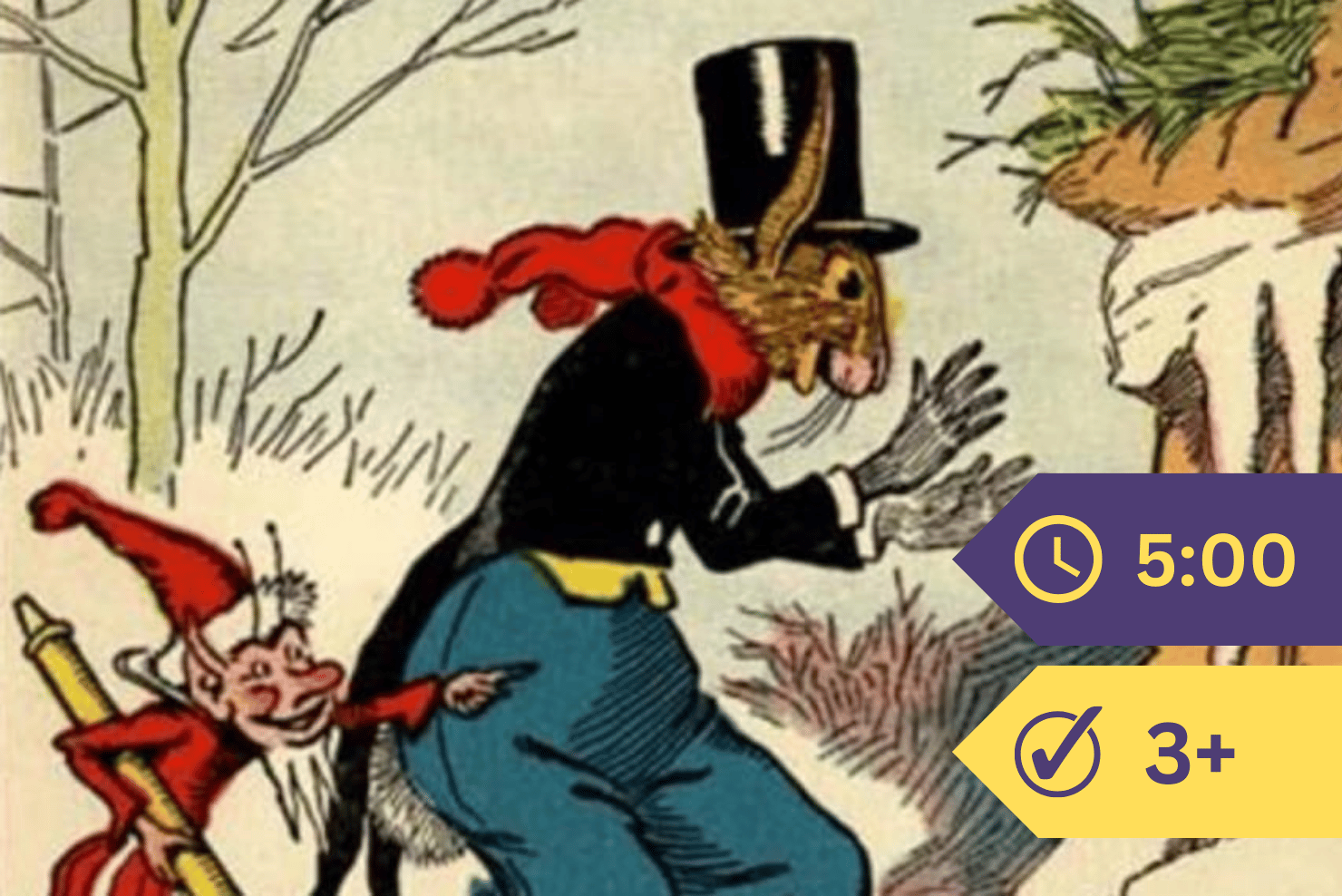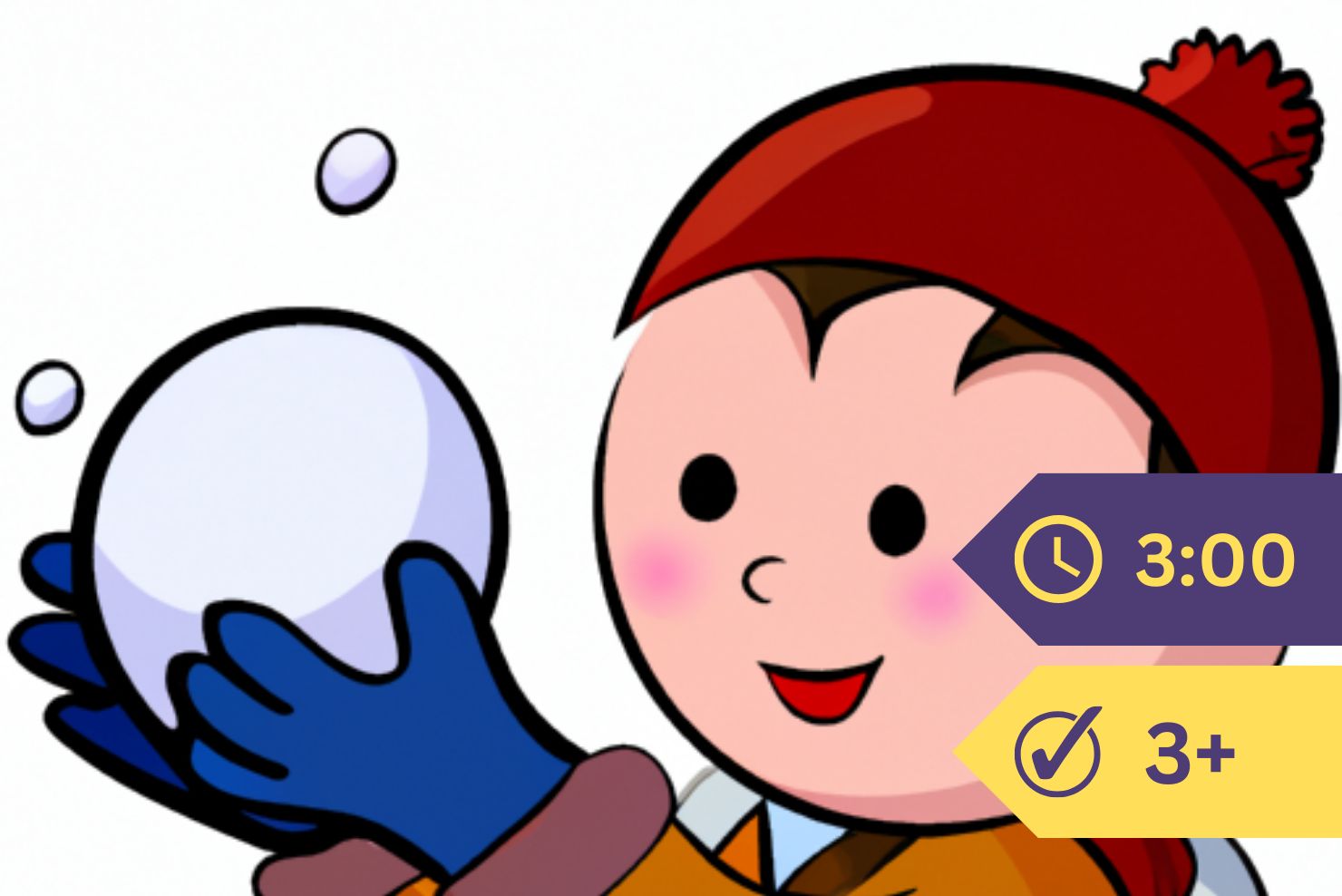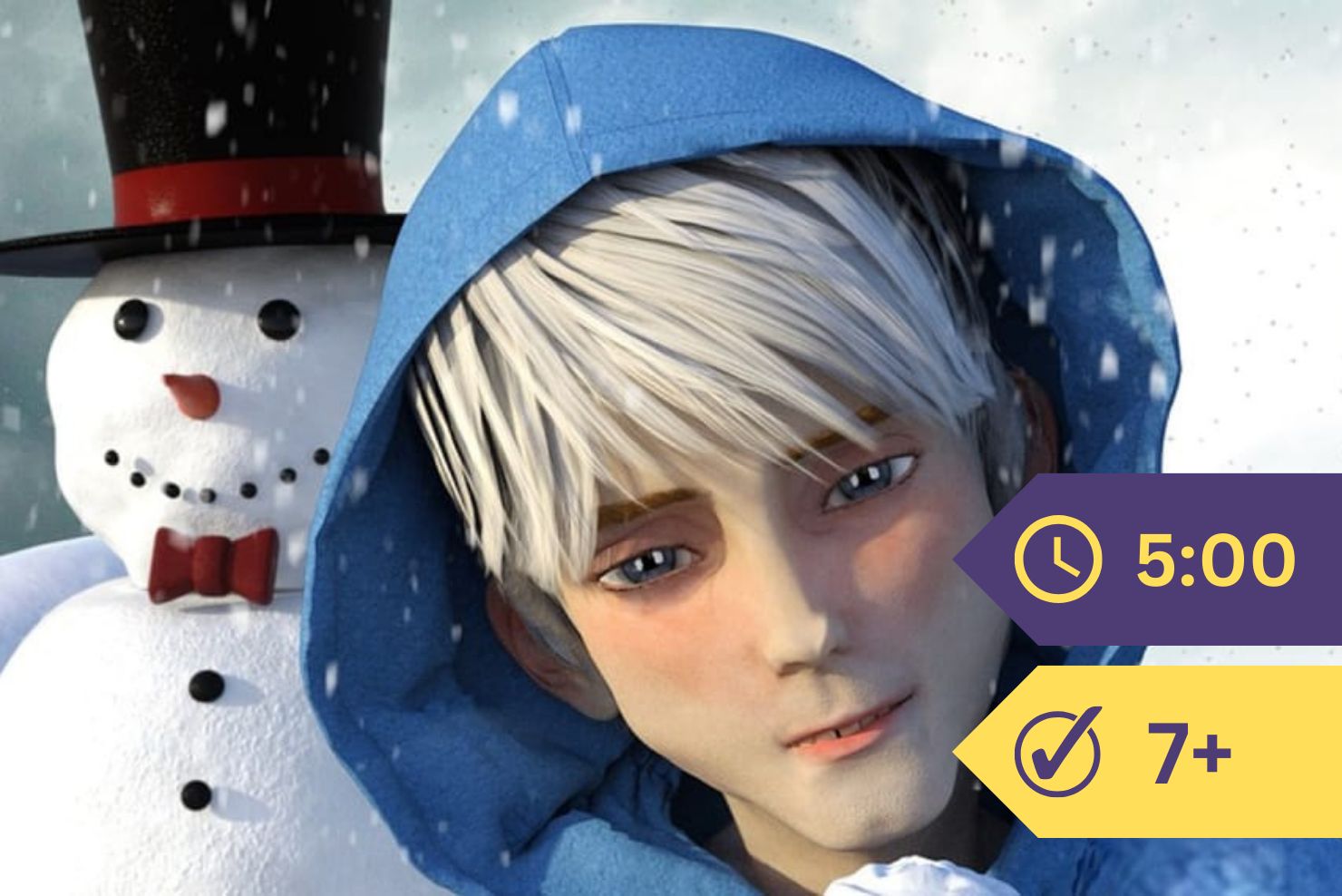“Ho! ho!” said Jack Frost one cold evening near the end of autumn, “this is just the kind of night I have been waiting for. The clouds have been thick enough to keep back the heat of the sun, and North Wind has been out all day telling people that I should be around tonight. Sometimes I like to surprise people; but I find that I am not always welcome when I make my visits unexpectedly, so this time I have sent word, and I hope that no one will grumble. It is a fine night for work.” So Jack Frost packed his box and started off. By this time the sun and the clouds were gone, and the stars shone dear and bright in the dark sky. The air was keen and cold but very still, for North Wind had gone to sleep at sunset.
As Jack Frost had thought, people were expecting him that night. The farmer had had the young calves brought in from the pasture where they had been all summer. The barn doors were shut early and all the animals were made comfortable for the night. People took in their plants and gathered the autumn flowers from the gardens. “These are the last for this year,” they said; “Jack Frost will destroy everything tonight.” Mothers went about to the children’s beds, putting extra blankets over them, so that the little ones should be snug and warm and cosy. In fact, owing to Jack Frost’s kind warning, most people were ready for him by the time he began his work.
In the box which Jack Frost carried he had paint brushes large and small, and a paint box. He had also some sparkling stuff of a silvery white. This was what he used on the window panes. Some coarser stuff of the same kind was for making the ground white. All his tools were not of this kind, however. Jack Frost makes many things beautiful, but he also destroys. It is part of his work to prepare the earth for winter by pinching the late flowers and nipping the grasses and hardening the ground; so, besides the paints and paint brushes which he had in his box, he had sharp nippers and pincers, and hammers, and such things.
When Jack Frost came to the chestnut trees, he said, “Oh! the nuts are ripe! I must open the burrs so that the squirrels and the children can get these nice nuts.” So he stayed among the chestnut trees a long time, prying open the prickly burrs. How pretty the brown nuts looked, packed so snugly in their velvet-lined cases!
Jack Frost traveled fast and far, working all the time. How many burrs he opened, how many panes of glass he decorated, I am sure I cannot tell; but I must tell of one sad thing which he had to do. Little Alan had a garden of his own. His mamma had told him in the afternoon to take up his plants or Jack Frost would destroy them. Alan had put off doing it as he was busy at play when she told him, and he did not think of it again until it was too late.
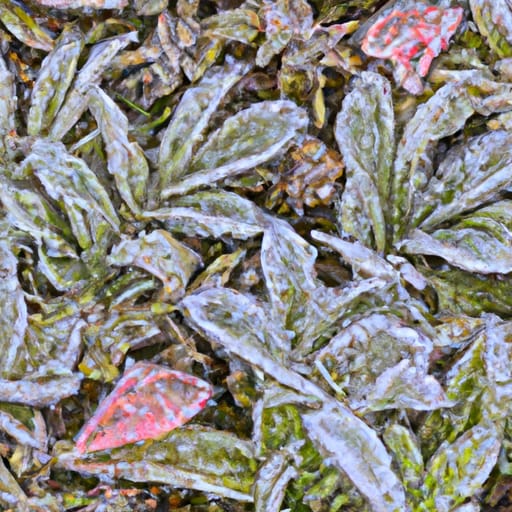
When Jack Frost came to the little garden, he felt very sorry. “Oh, dear!” said he. “I wish Alan had taken up these plants! I hate to destroy them, but I cannot leave them here in old Winter’s way.” So out came the nippers and pincers and some black paint, and soon Alan’s garden was a sad sight.
The next morning the ground was all white and sparkling, the trees looked very gay with their red and yellow leaves, and the squirrels were very joyful as they gathered the ripe chestnuts. But there was a little boy who felt very unhappy indeed as he saw what Jack Frost had done to his garden. “Next time,” said Alan to his mamma, as they were talking about his garden that night, “next time, I will take ail my plants into the house as soon as you tell me that Jack Frost is coming.”
“Then Jack Frost has made my little boy wiser,” said his mamma.

